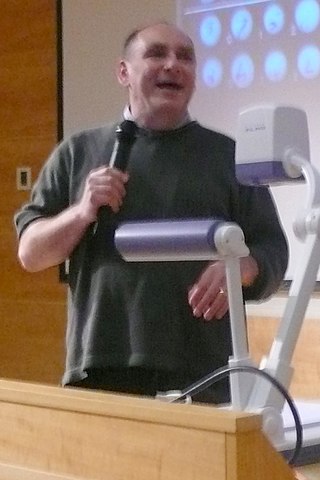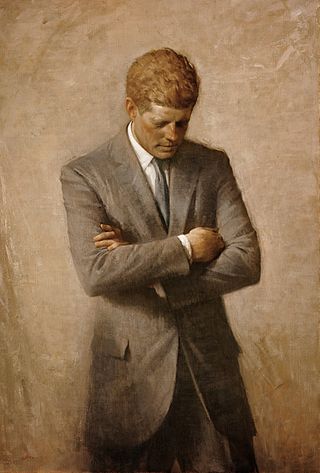Related Research Articles
Sir Richard Brook Sykes is a British microbiologist, the chair of the Royal Institution, the UK Stem Cell Foundation, and the trustees at King Edward VII's Hospital, and chancellor of Brunel University. As of June 2021, he is chair of the UK's Vaccine Taskforce, where he is responsible for overseeing the delivery of the COVID-19 vaccination programme, including preparations for booster programmes and encouraging vaccine innovation in the UK.

Lisa Anne Jardine was a British historian of the early modern period.
The Engineering and Physical Sciences Research Council (EPSRC) is a British Research Council that provides government funding for grants to undertake research and postgraduate degrees in engineering and the physical sciences, mainly to universities in the United Kingdom. EPSRC research areas include mathematics, physics, chemistry, artificial intelligence and computer science, but exclude particle physics, nuclear physics, space science and astronomy. Since 2018 it has been part of UK Research and Innovation, which is funded through the Department for Business, Energy and Industrial Strategy.
Sir Michael James Paul Arthur FMedSci is a British academic who was the tenth provost and president of University College London between 2013 and January 2021. Arthur had previously been chairman of the Russell Group of UK universities and the vice-chancellor of the University of Leeds between September 2004 and 2013.

Sir Adrian Frederick Melhuish Smith, PRS is a British statistician who is chief executive of the Alan Turing Institute and president of the Royal Society.

The Department of Mathematics at the University of Manchester is one of the largest unified mathematics departments in the United Kingdom, with over 90 academic staff and an undergraduate intake of roughly 400 students per year and approximately 200 postgraduate students in total. The School of Mathematics was formed in 2004 by the merger of the mathematics departments of University of Manchester Institute of Science and Technology (UMIST) and the Victoria University of Manchester (VUM). In July 2007 the department moved into a purpose-designed building─the first three floors of the Alan Turing Building─on Upper Brook Street. In a Faculty restructure in 2019 the School of Mathematics reverted to the Department of Mathematics. It is one of five Departments that make up the School of Natural Sciences, which together with the School of Engineering now constitutes the Faculty of Science and Engineering at Manchester.

Bedford High School is a coeducational secondary school in the Bedford area of Leigh, Greater Manchester, England.

Jonathan Andrew Crowcroft is the Marconi Professor of Communications Systems in the Department of Computer Science and Technology, University of Cambridge, a visiting professor at the Department of Computing at Imperial College London, and the chair of the programme committee at the Alan Turing Institute.
Sir Derman Guy Christopherson was a British engineering science academic.

Kennedy Scholarships provide full funding for up to ten British post-graduate students to study at either Harvard University or the Massachusetts Institute of Technology (MIT). Susan Hockfield, the sixteenth president of MIT, described the scholarship program as a way to "offer exceptional students unique opportunities to broaden their intellectual and personal horizons, in ways that are more important than ever in an era defined by global interaction.". In 2007, 163 applications were received, of which 10 were ultimately selected, for an acceptance rate of 6.1%.

Michael Batty is a British academic currently appointed as Bartlett Professor of Planning in The Bartlett at University College London. His work spans the fields of urban planning, geography and spatial data science. He has been Director—now Chairman—of the Centre for Advanced Spatial Analysis, set up when he was appointed to UCL in 1995. His research and the work of CASA is focused on computer models of city systems. He was awarded the William Alonso Prize of the Regional Science Association in 2011 for his book Cities and Complexity, the same prize a second time for his book The New Science of Cities in 2017–2018, the University Consortium GIS Research Award in 2012, and the Lauréat Prix International de Géographie Vautrin Lud, the so-called 'Nobel for geography', in 2013. In 2015, he was awarded the Founder's Medal of the Royal Geographical Society and in 2016, the Gold Medal of the Royal Town Planning Institute (RTPI). He also received the Senior Scholar Award of the Complex Systems Society in September 2016.

The Alan Turing Institute is the United Kingdom's national institute for data science and artificial intelligence, founded in 2015 and largely funded by the UK government. It is named after Alan Turing, the British mathematician and computing pioneer.
The Centre for Advanced Spatial Analysis (CASA) is a research centre at University College London (UCL), which specialises in the application and visualisation of spatial analytic techniques and simulation models to cities and regions. It is a constituent department of The Bartlett Faculty of the Built-Environment.

The Henry Royce Institute is the UK’s national institute for advanced materials research and innovation.
Sir Marcus Henry Richmond is a British biochemist, microbiologist and academic.
The Interdisciplinary Prizes of the Royal Society of Chemistry recognize work at the interface between chemistry and other disciplines. Up to three prizes are awarded annually: Each winner receives £5000 and a medal, and completes a UK lecture tour.
The Suffrage Science award is a prize for women in science, engineering and computing founded in 2011, on the 100th anniversary of International Women's Day by the MRC London Institute of Medical Sciences (LMS). There are three categories of award:
- life sciences
- engineering and physical sciences
- mathematics and computing.
References
- ↑ UCL Centre for Advanced Spatial Analysis accessed 19 December 2010
- ↑ Debrett's Archived 15 August 2012 at the Wayback Machine Prof Sir Alan Wilson, FBA, FRS
- ↑ Kelly, Jim (28 October 2003). "Top man". The Guardian. Retrieved 31 May 2020.
- 1 2 "New Master announced for College". Corpus Christi College, Cambridge. Archived from the original on 19 October 2006. Retrieved 24 October 2006.
- ↑ "Staff". Centre for Advanced Spatial Analysis (CASA). Retrieved 12 May 2011.
- ↑ "Professor Sir Alan Wilson joins UCL CASA". Ucl.ac.uk. 12 September 2007. Retrieved 10 April 2018.
- ↑ "Professor Sir Alan Wilson". Archived from the original on 14 July 2014. Retrieved 16 August 2012.
- ↑ "Leadership - The Alan Turing Institute". Turing.ac.uk. Retrieved 10 April 2018.
- ↑ "Professor Dame Wendy Hall appointed Chair of the Ada Lovelace Institute". Nuffield Foundation. 18 May 2020. Retrieved 20 May 2020.
- ↑ "Sir Alan Wilson - Faculty - LIS". The London Interdisciplinary School. Retrieved 5 June 2024.
- ↑ "Alan Wilson : Bio". Royalsociety.org. Retrieved 10 April 2018.
- ↑ Leeds Reporter 503 (2004) Archived 16 July 2011 at the Wayback Machine Retirements Confirmed